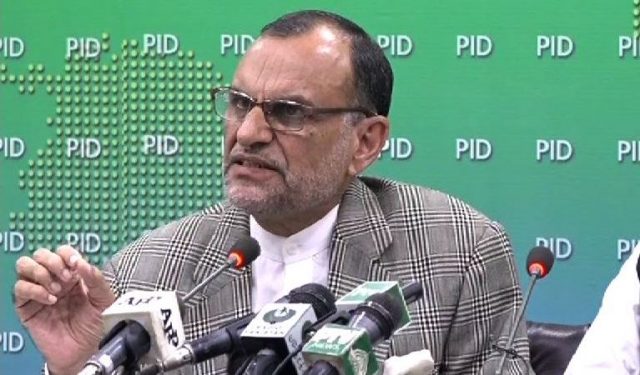Lahore:
Federal Minister for Railways Azam Swati has claimed responsibility for the train accident in Ghotki. He said, “As a senior official (Railway Minister), I take responsibility for this train accident and senior officers working under me also However, he also blamed all those who he said were involved in corruption and had done nothing for the railways for the last 25 to 30 years.
When asked if the PTI was sitting on opposition benches and demanding the resignation of the then Railway Minister Saad Rafique over train accidents, he said he would resign from the ministry over the accident.
In response, Azam Swati said, “As a senior official (Railway Minister), I take responsibility for this train accident and the senior officers working under me also take responsibility for it.”
However, Azam Swati also blamed those who he said were involved in corruption and had done nothing for the railways for the last 25 to 30 years.
“This track is stuck in our throats like a bone that we cannot swallow or vomit. I acknowledge that the safety of passengers on this track is at stake,” he admitted.
The Ministry of Railways had recently claimed a 23 per cent reduction in train accidents between January and March this year as compared to 64 accidents reported during the same period last year and in 2019 according to media reports. There were more than 100 train accidents.
The Bahawalpur-Sukkur-Hyderabad Main Line One is an integral part of the project which needs immediate rehabilitation. Although several branch lines of Pakistan Railways are in dilapidated condition, this section has been neglected for the last few years.
In 2014, the department carried out special repairs to the section, which made train operations somewhat easier, but in 2018, when the government reduced the railway budget, the situation began to deteriorate.
At a time when accidents were on the rise, the railway administration focused on running more passenger trains instead of rehabilitating the track, which further aggravated the situation.
So when the outdated and faulty interlocking / singleing system, self-sufficient passenger coaches and freight / freight wagons, manpower shortages and unsupervised level crossings already existed, more trains were running on the dilapidated track In addition to passengers, staff, passers-by, animal lives and property, the railways played a role in the destruction of its own infrastructure.
Talking to Dawn, the Railway Minister defended the further increase in existing trains and said that the move would take time to increase revenue.
“Whether we run new trains or not, we are in deficit and there is confusion over whether to rehabilitate this track or replace it with a new one,” he said.
“If we start rehabilitating the track and in the meantime C-Pack’s MN-1 project starts, we will lose Rs 15 to 20 billion,” he said. We will raise with them whether they want to start this project and if there is a delay, we will start the process of restoring the track ourselves.
The federal minister claimed that since he took over the ministry, he had raised a number of issues immediately, including the delay in replacing the faulty interlocking system, adding that the National Accountability Bureau (NAB) There was a plan behind it and no officer was willing to work on it.
Azam Swati said, “I personally met the Chairman NAB and requested that the ongoing inquiry in this regard be terminated immediately and he has done so.”
Railway sources said that the negligence of the department has also led to the Ghotki accident as the Railway Sukkur Division was recently informed of the possibility of a major accident.
“I am really surprised at the government’s silence on such blatant negligence on the part of senior officials,” the official, speaking on condition of anonymity.
He said that the letter sent by the Chief Engineer of Pakistan Railway Headquarters to DS (Sukkur) 4 days ago also showed that despite the provision of material, in case of non-repair of this section immediately, Accidents were possible but unfortunately no action was taken.









